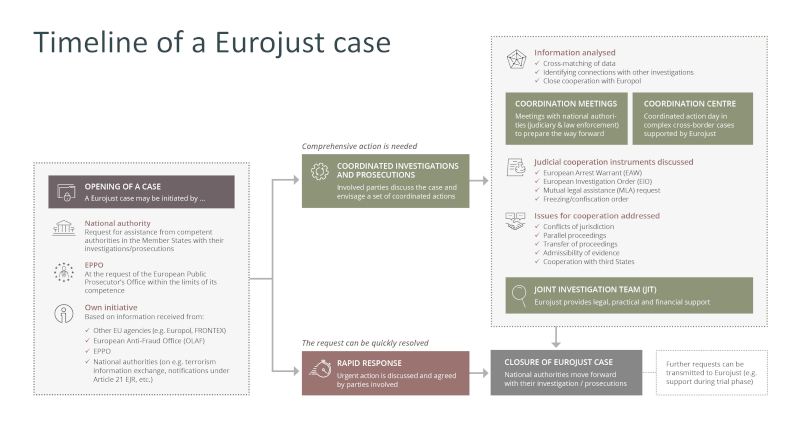Eurojust is a hub where national judicial authorities connect, work closely together and ensure solid judicial follow-up throughout the internal security chain, from the very start of the cross-border criminal investigation to the final verdict in court.
A case can be opened at the initiative of a national authority, the European Public Prosecutor’s Office (EPPO) and the Eurojust College. Each case is unique and requires a tailor-made response, ranging from a rapid reaction to coordinated actions, using a range of tools such as coordination meetings, the coordination centre and the formation of joint investigation teams.

